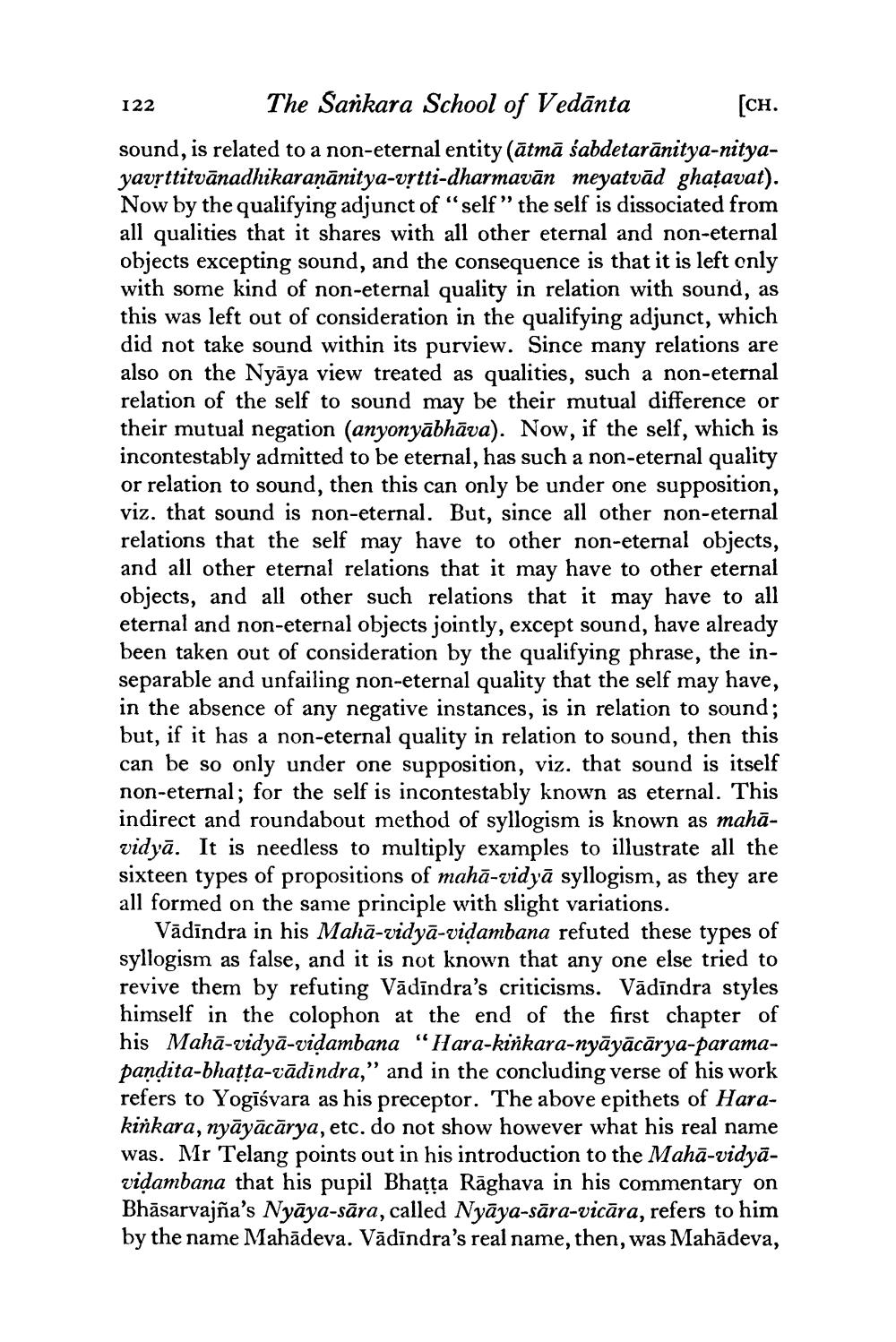________________
122
The Sankara School of Vedānta [CH. sound, is related to a non-eternal entity (ātmā śabdetarānitya-nityayavrttitvānadhikaranānitya-vịtti-dharmavān meyatvād ghațavat). Now by the qualifying adjunct of "self" the self is dissociated from all qualities that it shares with all other eternal and non-eternal objects excepting sound, and the consequence is that it is left only with some kind of non-eternal quality in relation with sound, as this was left out of consideration in the qualifying adjunct, which did not take sound within its purview. Since many relations are also on the Nyāya view treated as qualities, such a non-eternal relation of the self to sound may be their mutual difference or their mutual negation (anyonyābhāva). Now, if the self, which is incontestably admitted to be eternal, has such a non-eternal quality or relation to sound, then this can only be under one supposition, viz. that sound is non-eternal. But, since all other non-eternal relations that the self may have to other non-eternal objects, and all other eternal relations that it may have to other eternal objects, and all other such relations that it may have to all eternal and non-eternal objects jointly, except sound, have already been taken out of consideration by the qualifying phrase, the inseparable and unfailing non-eternal quality that the self may have, in the absence of any negative instances, is in relation to s but, if it has a non-eternal quality in relation to sound, then this can be so only under one supposition, viz. that sound is itself non-eternal; for the self is incontestably known as eternal. This indirect and roundabout method of syllogism is known as mahāvidyā. It is needless to multiply examples to illustrate all the sixteen types of propositions of mahā-vidyā syllogism, as they are all formed on the same principle with slight variations.
Vādīndra in his Mahā-vidyā-vidambana refuted these types of syllogism as false, and it is not known that any one else tried to revive them by refuting Vādīndra's criticisms. Vādīndra styles himself in the colophon at the end of the first chapter of his Mahā-vidyā-vidambana “Hara-kinkara-nyāyācārya-paramapandita-bhatta-vādindra,” and in the concluding verse of his work refers to Yogīśvara as his preceptor. The above epithets of Harakinkara, nyāyācārya, etc. do not show however what his real name was. Mr Telang points out in his introduction to the Mahā-vidyāvidambana that his pupil Bhatta Rāghava in his commentary on Bhāsarvajña's Nyāya-sāra, called Nyāya-sāra-vicāra, refers to him by the name Mahādeva. Vādīndra's real name, then, was Mahādeva,




